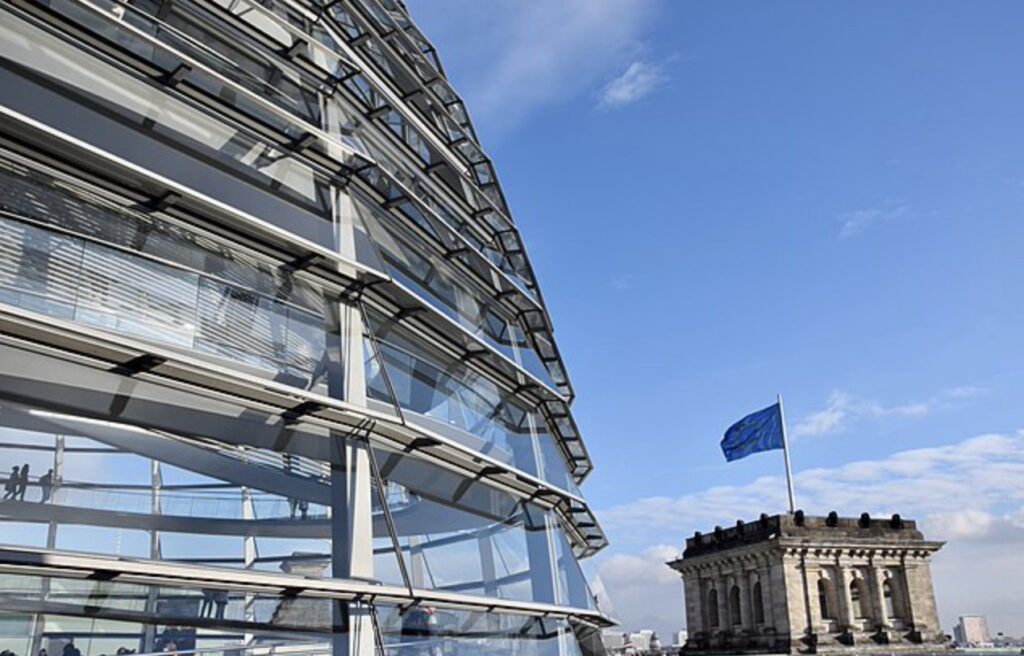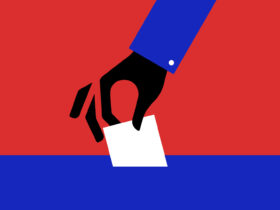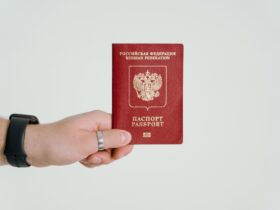LOS ANGELES — The German Federal Election will take place this year on Sept. 26, during which new members of parliament and a Federal Chancellor will be elected. While the election takes place every four years, this year’s election is particularly noteworthy.
Current German Chancellor Angela Merkel, who has been in office since 2005, announced that she will not be running, a decision that marks a potential turning point in German politics. Whoever wins the election will bring changes to Germany, as well as the European political sphere, after Merkel’s 16 years in office.
What is the overall process of this election?
The German Federal Election starts with the popular and proportional voting of the German Parliament, or “Bundestag.” All citizens who are 18 and older are eligible to vote in the election. The election asks voters to cast two distinct votes: the first for their district representative and the second for the party they support.
Germany has 299 constituencies and each constituency is guaranteed a seat in the Bundestag. The candidates can be either party-affiliated or independent. They are selected by the first vote, which follows the first-past-the-poll system.
The second vote follows a proportional representation and is used to select political parties. The parties on the ballot compete for the rest of the 299 seats in the Bundestag. The proportion of votes a party receives determines the number of seats they have. A party needs at least five percent of the second vote in order to enter the Bundestag.
If none of the parties win a simple majority of the Bundestag seats, the party that has the most seats will form coalitions with others to run the government.
After the Bundestag election comes the election of the Federal Chancellor. The Federal Chancellor selects members of the Federal Cabinet, determines the general guidelines of the policy and commands the Armed Forces.
The Federal Chancellor is not elected through the popular vote but rather by the Bundestag. According to Article 63 of the German Basic Law, the Federal President shall propose a Federal Chancellor, and the members of the Bundestag will vote on the candidate without debate on the proposal. If the candidate wins an absolute majority, he or she will be appointed by the German President within seven days of the election. Since the leading party has the most seats, the candidate from that party usually gets approved.
If the candidate fails to receive more than 50 percent of the votes, the Bundestag will need to select and elect a new Chancellor within 14 days. The winning candidate will still need to receive more than one-half of the total votes.
Which are the participating parties and who are the running candidates?
There are six parties that have the chance of entering the Bundestag in the upcoming election. The Christian Democratic Union of Germany (CDU) was previously led by Merkel and is now chaired by Armin Laschet. The CDU is in coalition with Christian Social Union in Bavaria (CSU).
The two parties combined to create an absolute majority in the Bundestag. The CDU was a liberal-conservative party founded in 1945. The party claims that it “stands for a free and constitutional democracy, a social and ecological market economy, Germany’s inclusion in the Western values and defense community, and the unification of the nation, as well as a unified Europe.”
Laschet, the party chairman, is also the party’s candidate for the Federal Chancellor. He is considered a conservative, the successor of Merkel’s policies and a supporter of the European Union. Laschet believes that the EU is stronger together and needs to maintain the rule of law. However, Laschet’s reaction towards the severe flood that swept across western Germany this July has drawn strong criticism: He was seen laughing during his visit to a flooded town in North Rhine-Westphalia. Laschet’s personal approval rating subsequently went down six points by the end of that month. The rating of the CDU/CSU coalition has also gradually dropped by six points after the flood. The coalition has lost its leading position and is now neck to neck with the Social Democratic Party of Germany (SPD).
The SPD was founded in 1875. It is the oldest party in Germany. The party holds a center-left political stance and has been regarded as the party that represents the working class.
The SPD concentrates on protecting people’s social rights and promoting equality in the age of globalization. It also cares about environmental issues and sustainability, and intends to maintain a solid relationship with the EU and Africa.
Olaf Scholz, who currently serves as Merkel’s deputy and finance minister, is the SPD’s candidate for Federal Chancellor. In his mission statement, Scholz writes that he intends to modernize Germany’s industry, secure jobs, and consistently advance climate protection.
Following the SPD comes the Greens (Die Grünen). It is headed by Annalena Baerbock and Robert Habeck. The Green party is left-winged and focuses primarily on issues of environmentalism and nuclear phase-out, but maintains a socially liberal platform, including gay rights. It also plans to increase taxes, increase the statutory minimum wage and government spending, and therefore conduct a “socio-ecological transformation” of the economy.
Baerbock will be running for Chancellor on behalf of her party. She is the second female Chancellor candidate in German history. Baerbock is a devoted environmentalist and supports a “strong and united Europe.” Yet, her reputation has recently been questioned by the public after it was discovered that her new book has quoted external sources without appropriate attributions.
The Free Democratic Party (FDP) is a center-right party that represents neo-liberal free enterprises. It advocates for a free-market economy, more tax cuts, and less government interference with people’s lives. It also intends to improve Germany’s digital infrastructure by creating a new ministry in the government. The party leader is Christian Lindner, who is also expected to be the candidate for the Federal Chancellor.
The Alternative for Germany (AfD) is a far-right party run by Jörg Meuthen and Tino Chrupalla. Founded in 2013, the AfD is currently the largest opposition party in the Bundestag. It leans towards nationalism and is primarily anti-immigrant and anti-climate change. It is also skeptical of European integration. The AfD’s candidate for Federal Chancellor has not yet been determined. Either Meuthen or Chrupalla may receive the candidacy.
The Left (Die Linke) is considered to be the successor of the Socialist Unity Party of East Germany. Chaired by Susanne Hennig-Wellsow and Janine Wissler, The Left is a democratic socialist, left-winged party “committed to social justice, democracy and peace,” It proposes stronger market regulation and more social investments in areas such as health care. It opposes the German’s military interventions abroad. As of this August, the party has not yet announced its Federal Chancellor candidate.
What are the primary challenges and outlooks for each competing party?
Politico’s Poll of Polls shows that as of August 27, 2021, the CDU/CSU coalition and SPD are in the lead with 23%. However, Forsa, a German institute for social research and statistical analysis, provides a different result. It reveals that by August 24, 2021, SPD’s approval rating has reached 23% and, for the first time in 15 years, overtaken the CDU by 1 point. For the CDU, 22% represents the lowest rating it has ever received since 1984.
The Greens was also able to surpass the CDU this May. However, its approval rating later experienced a decline and is now 18%, leaving it in the third place. The parties after the Greens are FDP with 12%, AfD with 11%, and Die Linke with 6%.
According to Reuters, one of the major issues during the election is trust. The parties and their Federal Chancellor candidates need to convince the voters that they will be adept enough to lead Germany after succeeding Merkel. Merkel has run the country for 16 years, which makes her more competent and experienced than all the running candidates. She has also proved her abilities by wading the country through the eurozone crisis, the migrant crisis and the pandemic.
After the election, the newly-elected Federal Chancellor and the Bundestag will need to address issues such as fighting the coronavirus pandemic and outlining policies against climate change. Domestically, they will also need to carry out tax increases or tax cuts and adjust government spending. Internationally, the government will need to coordinate with the EU regarding fiscal policies and debts created during the pandemic.
There are still a few months before the election takes place. Based on current polls and approval ratings, the parties are still in close competition. At this point, it is difficult to determine which party is most likely to win the office. However, regardless of the final result, 2021 will be a new chapter for Germany.







